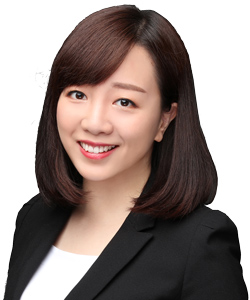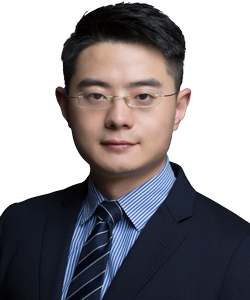Since the enactment of the Opinion of the Communist Party of China Central Committee and the State Council on Deepening the Reform of the Medical and Health Care System in 2009, related ministries and commissions have issued policies and opinions one after another on actively guiding the participation of social capital in the reform and restructuring of medical institutions invested by state-owned enterprises (SOEs).

Partner
East & Concord Partners
In 2016, the State Council issued the Circular on Printing and Issuing the Work Plan for Accelerating Relief of State-owned Enterprises of Their Obligations to Operate Social Programmes and Solving Their Other Longstanding Issues. In 2017, six ministries and commissions, including the State-owned Assets Supervision and Administration Commission (SASAC) of the State Council, the State Commission Office for Public Sector Reform, the Ministry of Finance, and the Ministry of Human Resources and Social Security, jointly issued the Guiding Opinion on Deepening the Reform of Educational and Medical Institutions Invested by State-owned Enterprises.
It is clearly pointed out in both of the above-mentioned circular and guiding opinions that centralized management, reform, or handover of medical institutions invested by SOEs should be basically completed by the end of 2018. The guiding opinion jointly issued by six ministries and commissions clearly proposes four solutions for deepening the reform of medical institutions invested by SOEs, that is: handing over to the local authority for management, orderly closing down and cancellation, active integration of resources, and pushing forward restructuring and reform in a regulated manner.

Associate
East & Concord Partners
When considering retaining the management system of SOEs and manning quotas, staff of the SOE hospitals generally incline towards the solution of handing over the hospital to local authorities for management. Many SOE hospitals are seated in remote areas, their personnel structure is incorrect, their operation is not profitable, and therefore local governments have no desire to take them over.
In practice, a few SOE hospitals were directly handed over to local governments and restructured into public hospitals, or handed over to local public hospitals or platform companies incorporated by the local governments. Closing down and cancellation, however, are a last resort for existing SOE hospitals.
By comparison, active integration of resources, pushing forward reform, restructuring in a regulated manner, inviting social capital to participate in reform, M&A and restructuring of medical institutions invested by SOEs that are yet to be reformed have become the optimal options for these SOE hospitals to seek survival. In addition, those SOE hospitals that are seated in convenient locations and own favourable resources are also high-quality M&A targets for social capital.
Social capital generally participates in the reform, M&A and restructuring of medical institutions invested by SOEs by the following two methods: First, the social capital acquires the SOE hospital as a whole and completely privatizes the hospital; and second, social capital participates in the mixed ownership reform of the SOE hospitals. The social capital and the SOEs will both offer their advantages and jointly manage the restructured hospitals.
If the social capital acquires the SOE hospital as a whole, the SOE will exit completely. It will be relieved from the obligation of hospital management and hand the hospital over to the social capital. In this model, the social capital will have major control over the M&A target, but the preliminary investment is large. In addition, this model involves transactions of state-owned assets, which should be subject to state-owned asset evaluation and exchanged in the market as per the Interim Measures for the Supervision and Management of State-owned Assets of Enterprises, Measures for the Supervision and Management of the Transactions of State-owned Assets of Enterprises, and other applicable regulations. In the case of foreign-funded enterprises, they will be subject to the restrictive provisions of the Special Administrative Measures (Negative List) for the Access of Foreign Investment on foreign investment in medical institutions.
If the social capital participates in the mixed ownership reform of SOE hospitals, the social capital and the SOEs may jointly manage the hospitals. Alternatively, the social capital and the SOE may otherwise establish a platform for business management. In this model, the social capital and SOEs generally will combine their respective advantages and bring new management concepts, management systems and various superior resources to the hospitals. In this way, the hospitals, based on their current conditions, will be more adaptive to market competition.
As to which model is better for the social capital to participate in the reform, M&A and restructuring of medical institutions invested by SOEs, the social capital should decide based on its consideration of investment distribution and returns on investment of the medical industry, its relationship with local government and the SOEs, financial costs for participation in the reform of the SOE hospital, and inclinations of the hospital staff.

In the meantime, the social capital also needs professional legal and financial teams to effectively control the process of its participation in the reform of medical institutions invested by SOEs. They will provide solutions to specific problems encountered during the reform and M&A of SOE hospitals such as entity registration of the hospital, whether the hospital is maintained non-profit or restructured into a profit one, ownership of hospital assets, manning quotas and resettlement of hospital staff, etc.
Zhong Ming is a partner and Zhao Mingqing is an associate at East & Concord Partners

East & Concord Partners
20/F, Landmark Building Tower 1
8 East 3rd Ring Road North
Chaoyang District, Beijing 100004, China
Tel: +86 10 6590 6639
Fax: +86 10 6510 7030
E-mail:
zhongming@east-concord.com
zhaomingqing@east-concord.com
www.east-concord.com





















